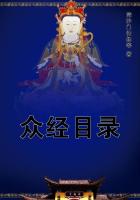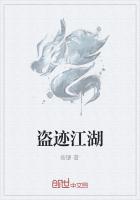Niccolo Machiavelli, the first great Italian historian, and one of the most eminent political writers of any age or country, was born at Florence, May 3, 1469. He was of an old though not wealthy Tuscan family, his father, who was a jurist, dying when Niccolo was sixteen years old. We know nothing of Machiavelli's youth and little about his studies. He does not seem to have received the usual humanistic education of his time, as he knew no Greek.[*] The first notice of Machiavelli is in 1498 when we find him holding the office of Secretary in the second Chancery of the Signoria, which office he retained till the downfall of the Florentine Republic in 1512. His unusual ability was soon recognized, and in 1500 he was sent on a mission to Louis XII. of France, and afterward on an embassy to Cesare Borgia, the lord of Romagna, at Urbino. Machiavelli's report and description of this and subsequent embassies to this prince, shows his undisguised admiration for the courage and cunning of Cesare, who was a master in the application of the principles afterwards exposed in such a skillful and uncompromising manner by Machiavelli in his /Prince/.
The limits of this introduction will not permit us to follow with any detail the many important duties with which he was charged by his native state, all of which he fulfilled with the utmost fidelity and with consummate skill. When, after the battle of Ravenna in 1512 the holy league determined upon the downfall of Pier Soderini, Gonfaloniere of the Florentine Republic, and the restoration of the Medici, the efforts of Machiavelli, who was an ardent republican, were in vain; the troops he had helped to organize fled before the Spaniards and the Medici were returned to power. Machiavelli attempted to conciliate his new masters, but he was deprived of his office, and being accused in the following year of participation in the conspiracy of Boccoli and Capponi, he was imprisoned and tortured, though afterward set at liberty by Pope Leo X. He now retired to a small estate near San Casciano, seven miles from Florence. Here he devoted himself to political and historical studies, and though apparently retired from public life, his letters show the deep and passionate interest he took in the political vicissitudes through which Italy was then passing, and in all of which the singleness of purpose with which he continued to advance his native Florence, is clearly manifested. It was during his retirement upon his little estate at San Casciano that Machiavelli wrote /The Prince/, the most famous of all his writings, and here also he had begun a much more extensive work, his /Discourses on the Decades of Livy/, which continued to occupy him for several years. These /Discourses/, which do not form a continuous commentary on Livy, give Machiavelli an opportunity to express his own views on the government of the state, a task for which his long and varied political experience, and an assiduous study of the ancients rendered him eminently qualified. The /Discourses/ and /The Prince/, written at the same time, supplement each other and are really one work. Indeed, the treatise, /The Art of War/, though not written till 1520 should be mentioned here because of its intimate connection with these two treatises, it being, in fact, a further development of some of the thoughts expressed in the /Discorsi/. /The Prince/, a short work, divided into twenty-six books, is the best known of all Machiavelli's writings. Herein he expresses in his own masterly way his views on the founding of a new state, taking for his type and model Cesare Borgia, although the latter had failed in his schemes for the consolidation of his power in the Romagna. The principles here laid down were the natural outgrowth of the confused political conditions of his time.
And as in the /Principe/, as its name indicates, Machiavelli is concerned chiefly with the government of a Prince, so the /Discorsi/treat principally of the Republic, and here Machiavelli's model republic was the Roman commonwealth, the most successful and most enduring example of popular government. Free Rome is the embodiment of his political idea of the state. Much that Machiavelli says in this treatise is as true to-day and holds as good as the day it was written. And to us there is much that is of especial importance. To select a chapter almost at random, let us take Book I., Chap. XV.:















